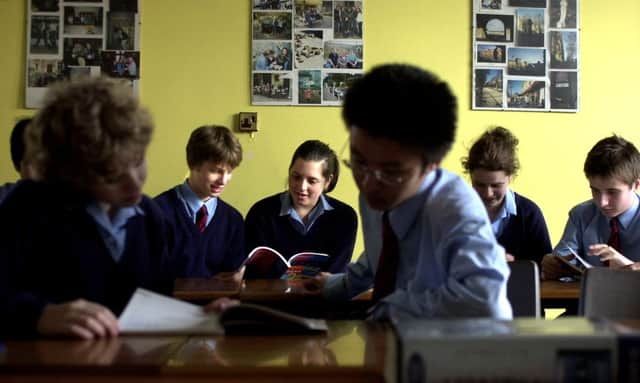How to promote mindfulness in Scotland’s schools


With that in mind, there is a renewed emphasis among teachers and staff to support all children to ensure they can learn in a safe and positive environment.
It comes at a time when youngsters’ mental health is a topic of increasing importance.
Advertisement
Hide AdAdvertisement
Hide AdIn 2014, one young person took their own life every five days in Scotland. Sixty-six Scots aged 15 to 24 killed themselves in 2014, the same number as the year before.
With Oxford University research suggesting that pupils who are bullied in childhood are twice as likely to suffer from depression as an adult, there is a desire to offer as much support as possible at an early stage.
The new Curriculum for Excellence, which has been introduced across state schools in Scotland, places huge importance on health and wellbeing.
“The aim is to develop young people as successful learners, confident individuals, effective contributors and responsible citizens,” the curriculum states.
“Children and young people who feel cared for and valued are much more likely to be happy and do well in life.
“Children who know themselves well and have self-respect are more likely to be resilient and strong, cope with change and challenge in life, and make good choices.
“We want all children and young people to feel safe and secure and be able to work in a supportive environment that promotes respect.”
But with one in 10 children likely to suffer severe mental health problems at some point during childhood, there are concerns that teachers will struggle to cope unless offered more support.
Advertisement
Hide AdAdvertisement
Hide AdGraeme McGregor, campaigns officer for the Scottish Association for Mental Health, said in an interview with Teaching Scotland magazine that teachers must be given adequate resources.
“This creates a risk that children and young people will be denied the information they need about mental health, and it puts additional stress and pressure on teachers, who are expected to teach about something they may have little knowledge of or training in,” he said.
Scottish Labour has called for more funding from the Scottish Government to provide increased NHS mental health provision for young people.
The Scottish Government told the BBC that increased funding had seen specialist child and adolescent mental health services workforce increase by 24 per cent since 2009.